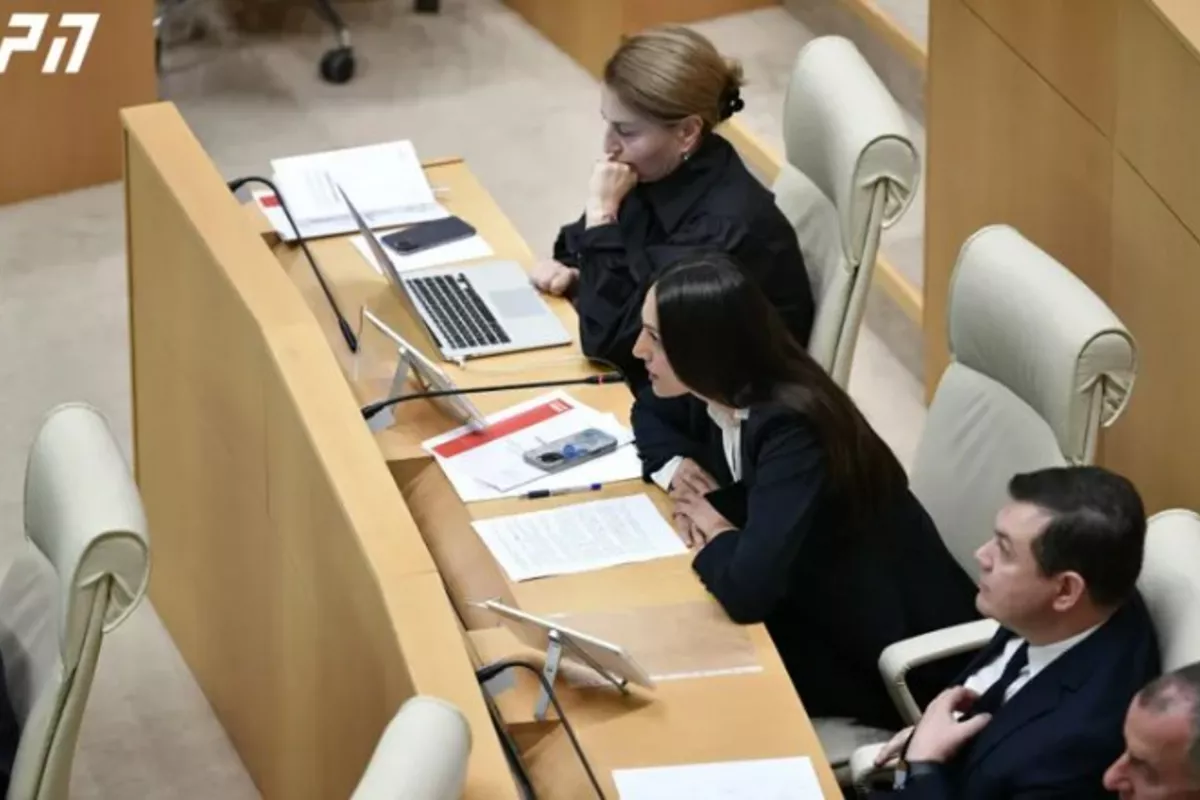
Photo credit: Interpressnews
One of the key questions Prime Minister Irakli Kobakhidze faced in parliament on Wednesday was regarding the government's position on Euro-Atlantic integration, as well as the rise of a new political party advocating for neutrality.
MP Vika Pilpani from the For Georgia party confronted Kobakhidze with an accusation that the ruling Georgian Dream (GD) is quietly helping promote the narrative pushed by the small party United Neutral Georgia, which has spent recent months calling for the country to abandon its goal of joining NATO and the European Union (EU), The Caspian Post reports citing foreign media.
Many among the opposition consider United Neutral Georgia a satellite of GD, a claim the ruling party denies.
Pilpani argued that GD had “stopped” the country’s EU integration process one year ago, a claim Kobakhidze rejected. She said pro-government media had amplified United Neutral Georgia’s central message of turning the country toward neutrality and questioned whether the prime minister agreed with that line.
Kobakhidze responded that the freeze in EU-Georgia dialogue was not triggered by his government but by Brussels itself. According to him, the European side suspended dialogue on 27 June 2024, and the decision “had no grounds”. He called it unfair toward the Georgian public and said it was Brussels, not Tbilisi, that had halted engagement.
The prime minister also pushed back against the claim that the government had shifted away from Georgia’s long-standing Euro-Atlantic orientation. He stressed that the country’s foreign-policy direction is written into the Constitution. That clause in the Constitution - Article 78 - was part of the 2017-2018 reform package and obliged all Georgian governments to pursue integration with Euro-Atlantic structures. At the time of its adoption, the country was government by a coalition named Georgian Dream that included several parties, including the identically named party that currently holds power.
Kobakhidze underlined that this constitutional course remains unchanged. He claimed that it was the GD government that added the provision, and he noted that the opposition at the time did not support the amendment.
In parliament he argued that Georgia’s strategic direction is clear, but that success depends on the broader international environment. He pointed to strained NATO-Ukraine relations and to decisions made by EU institutions regarding Georgia, saying these external factors affect the pace at which Georgia can meet its goals.
Share on social media